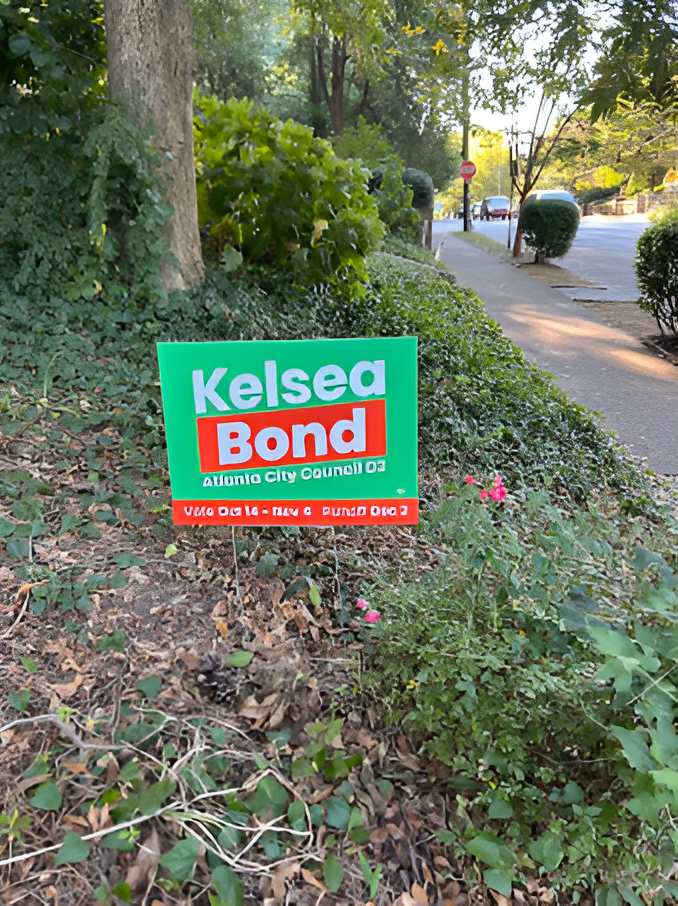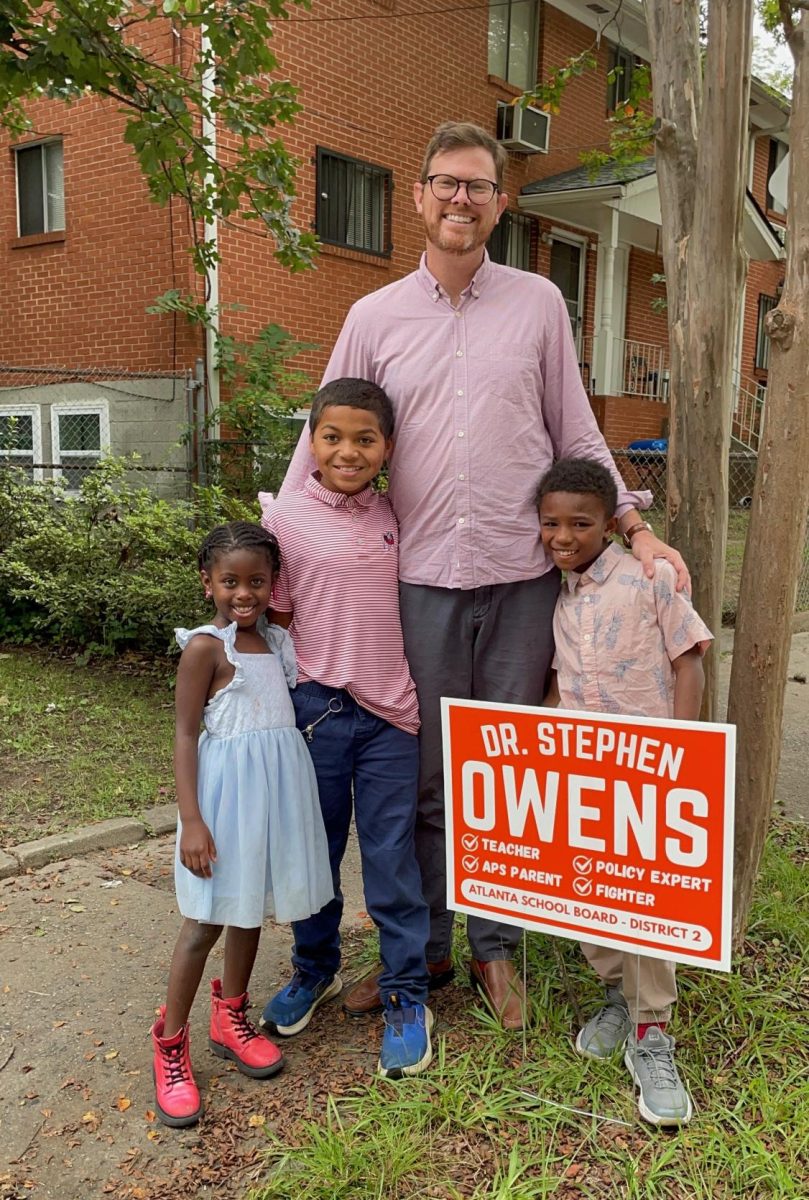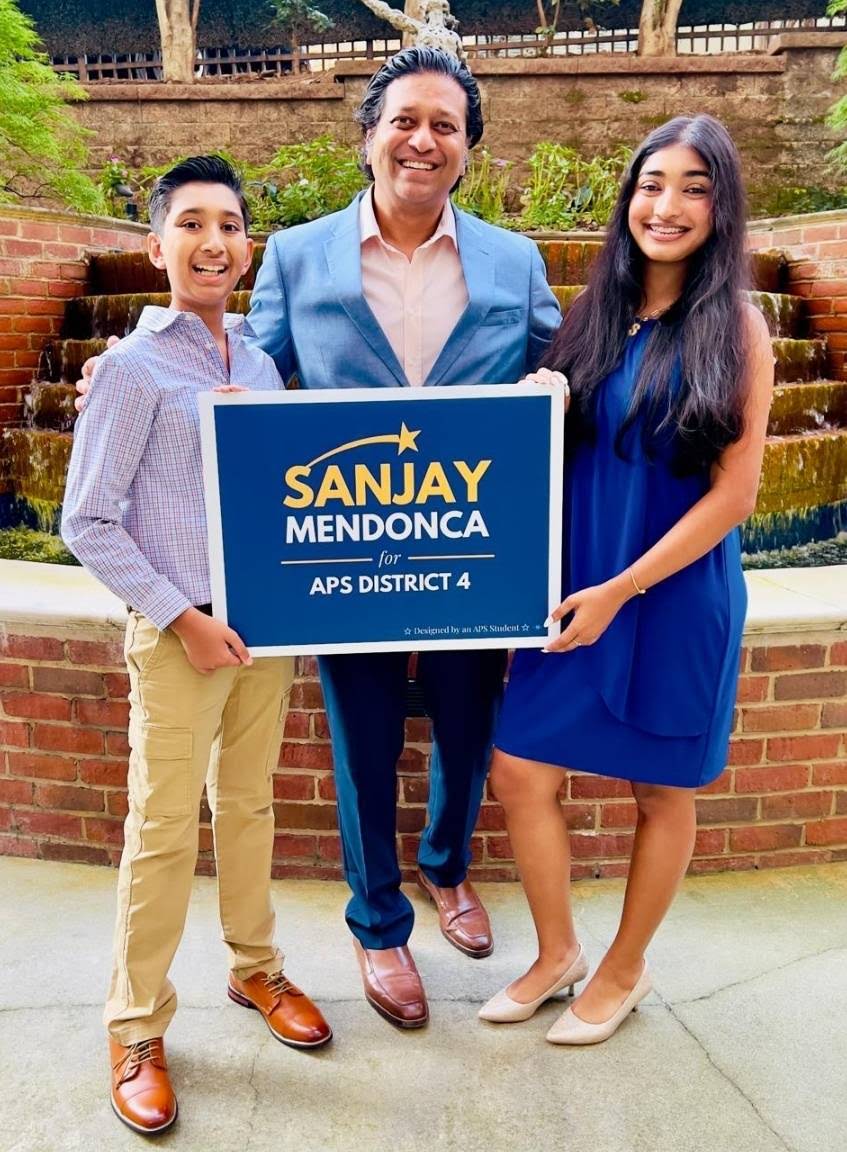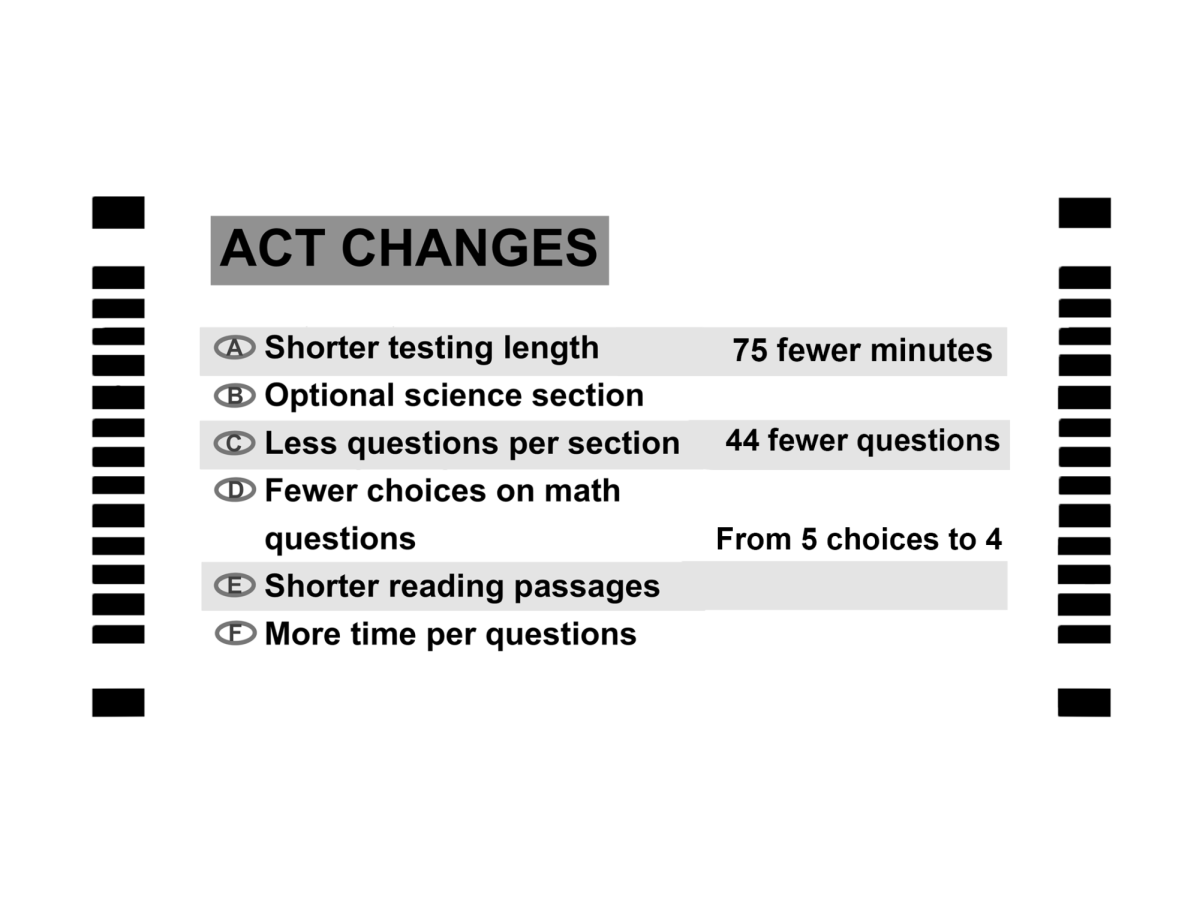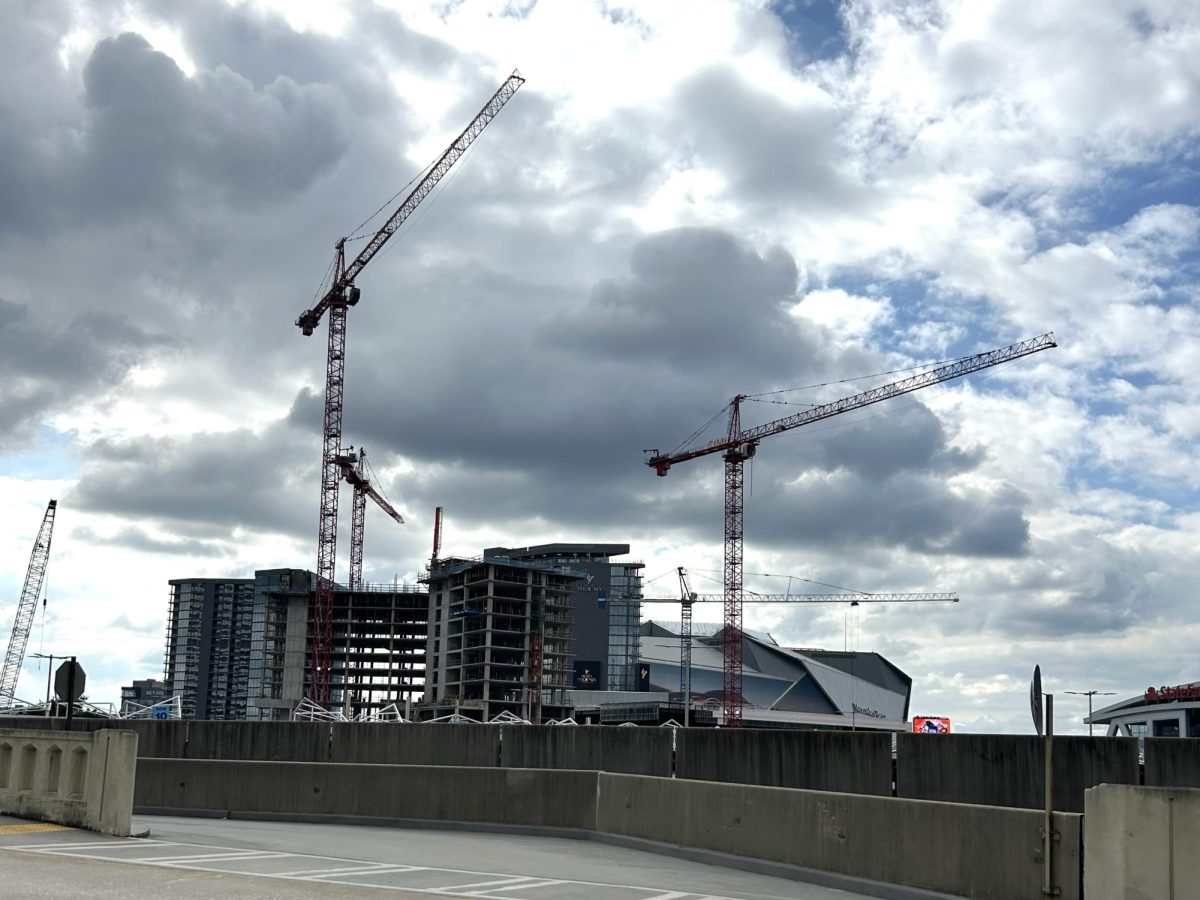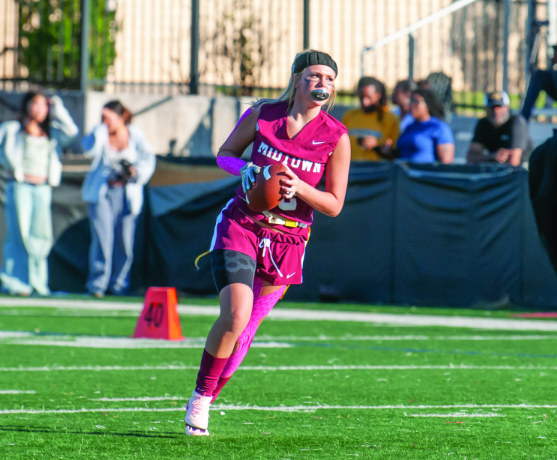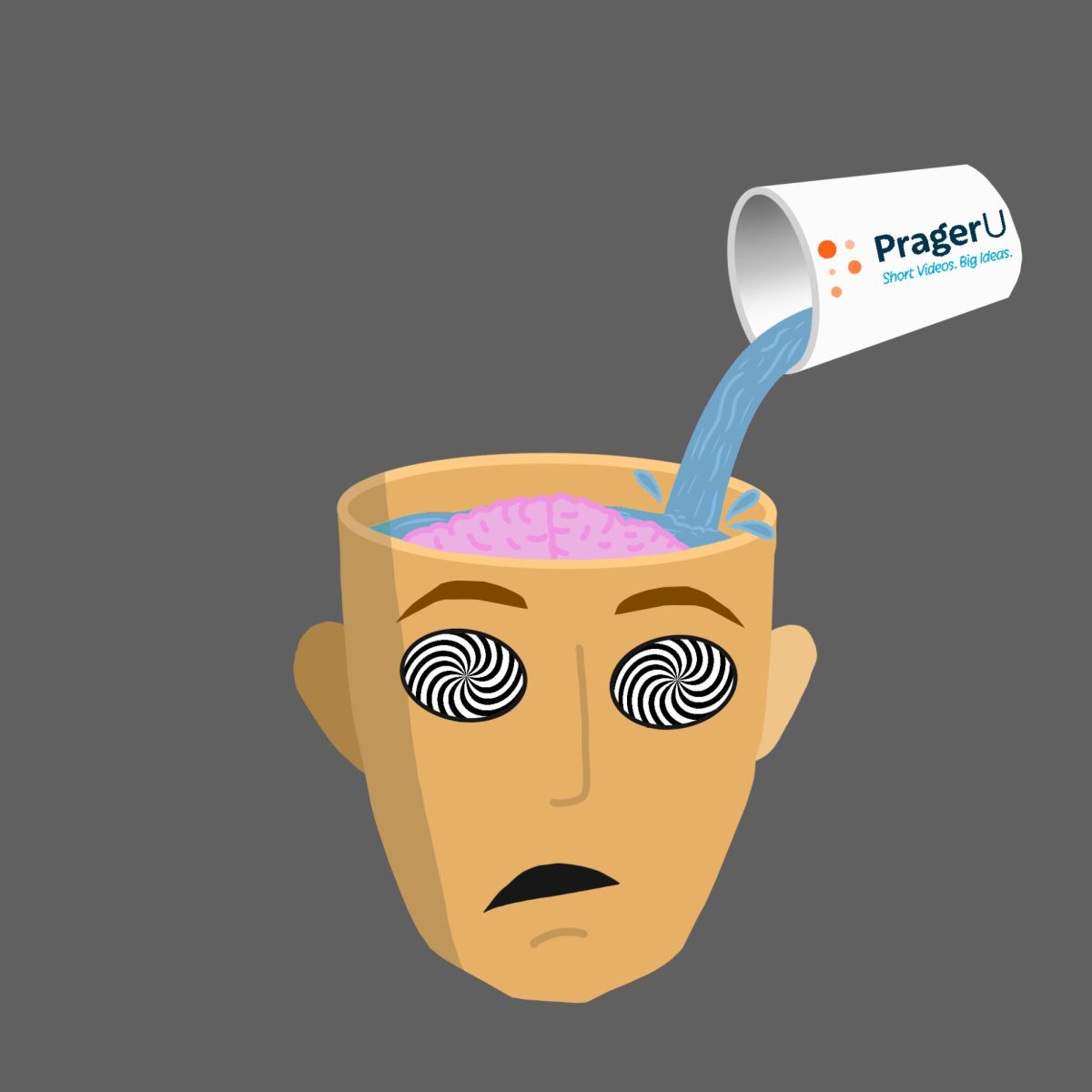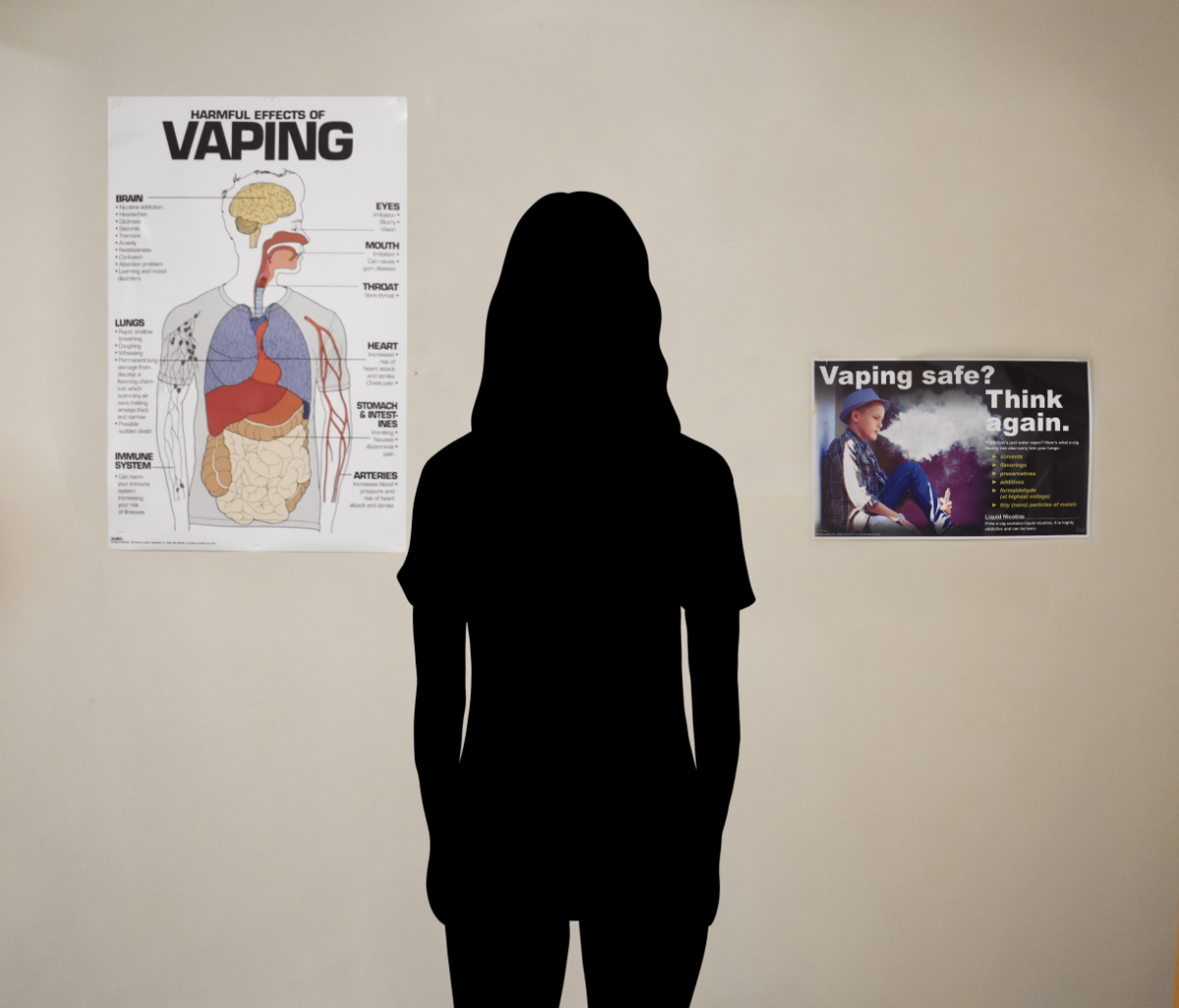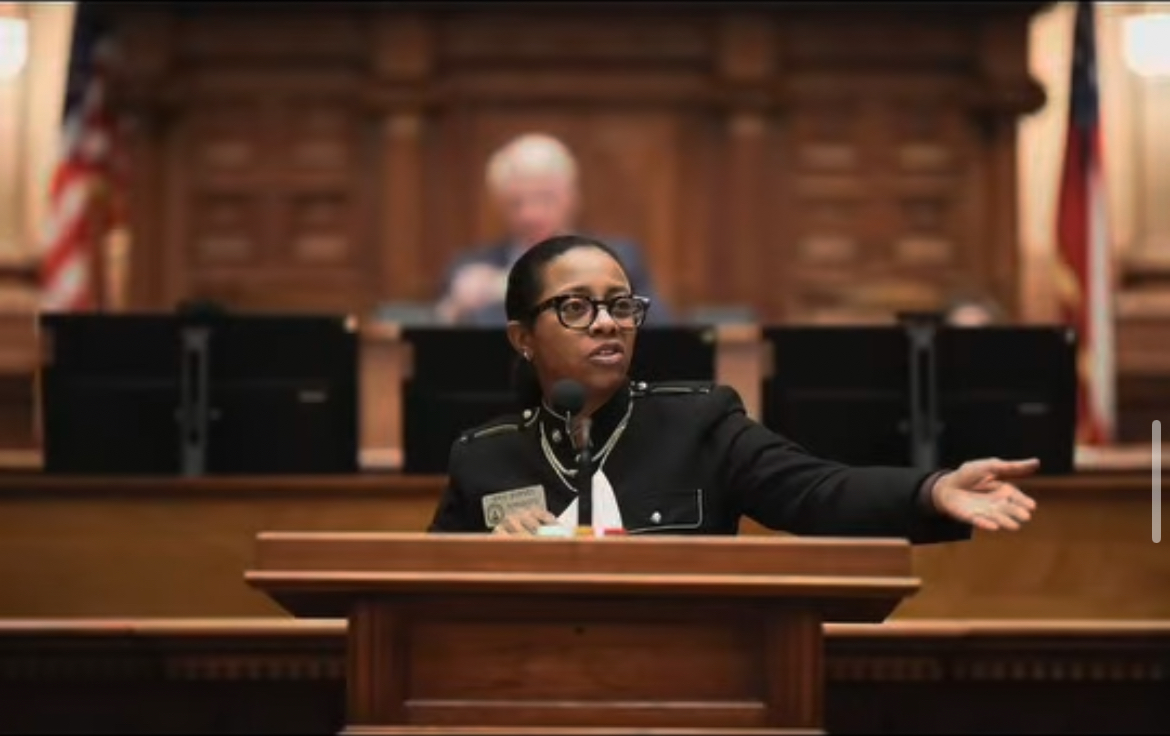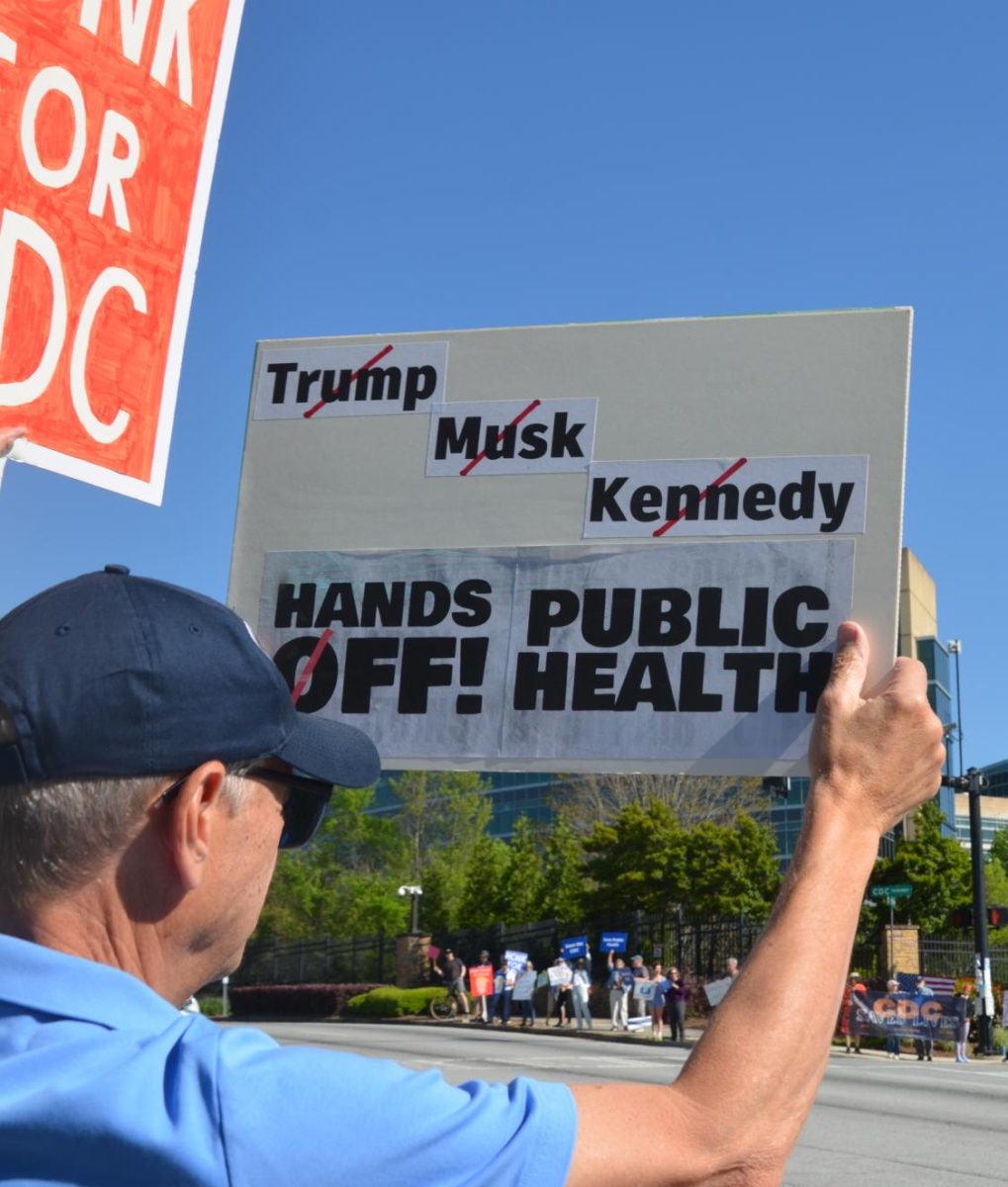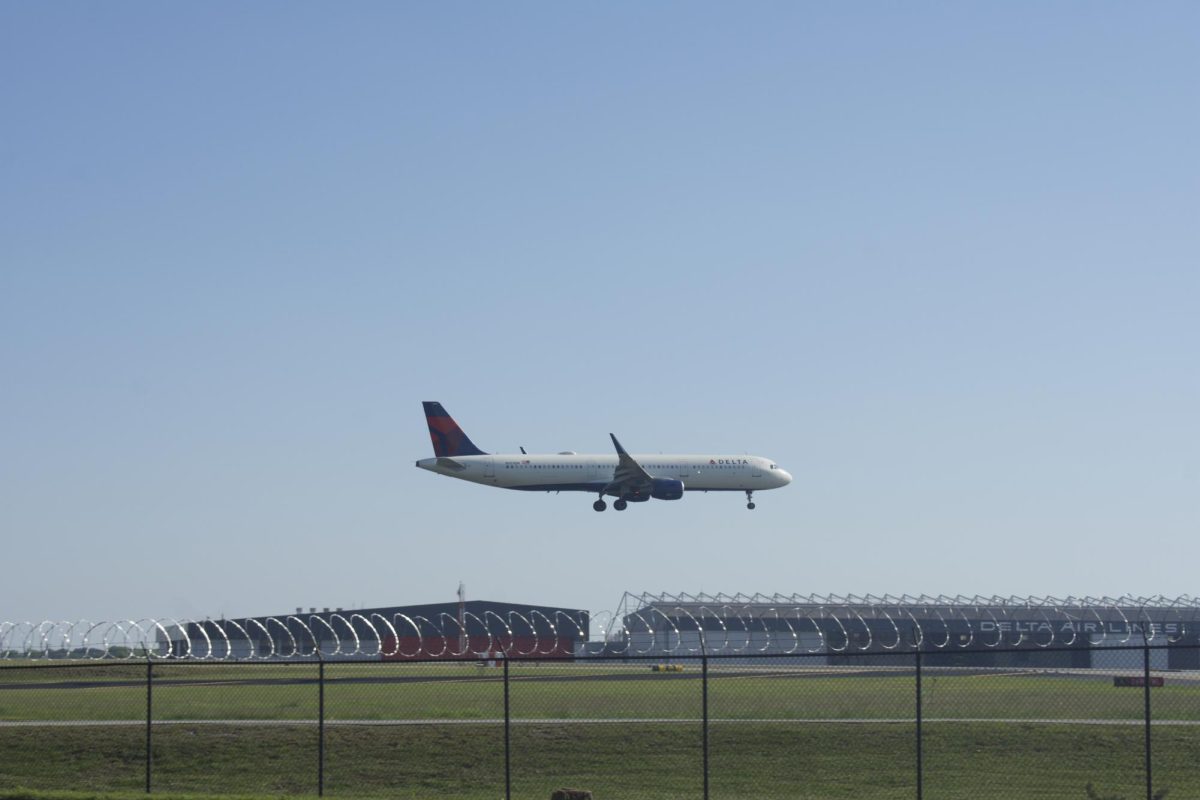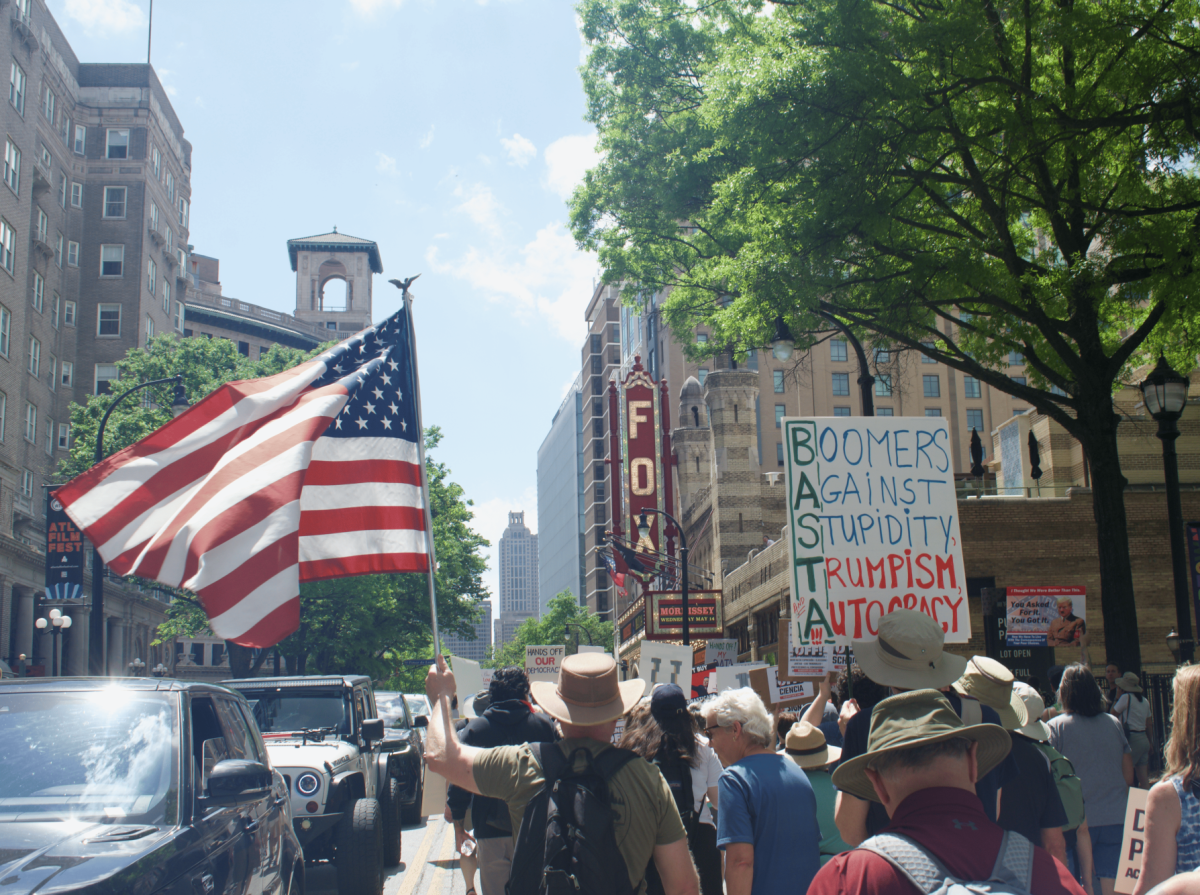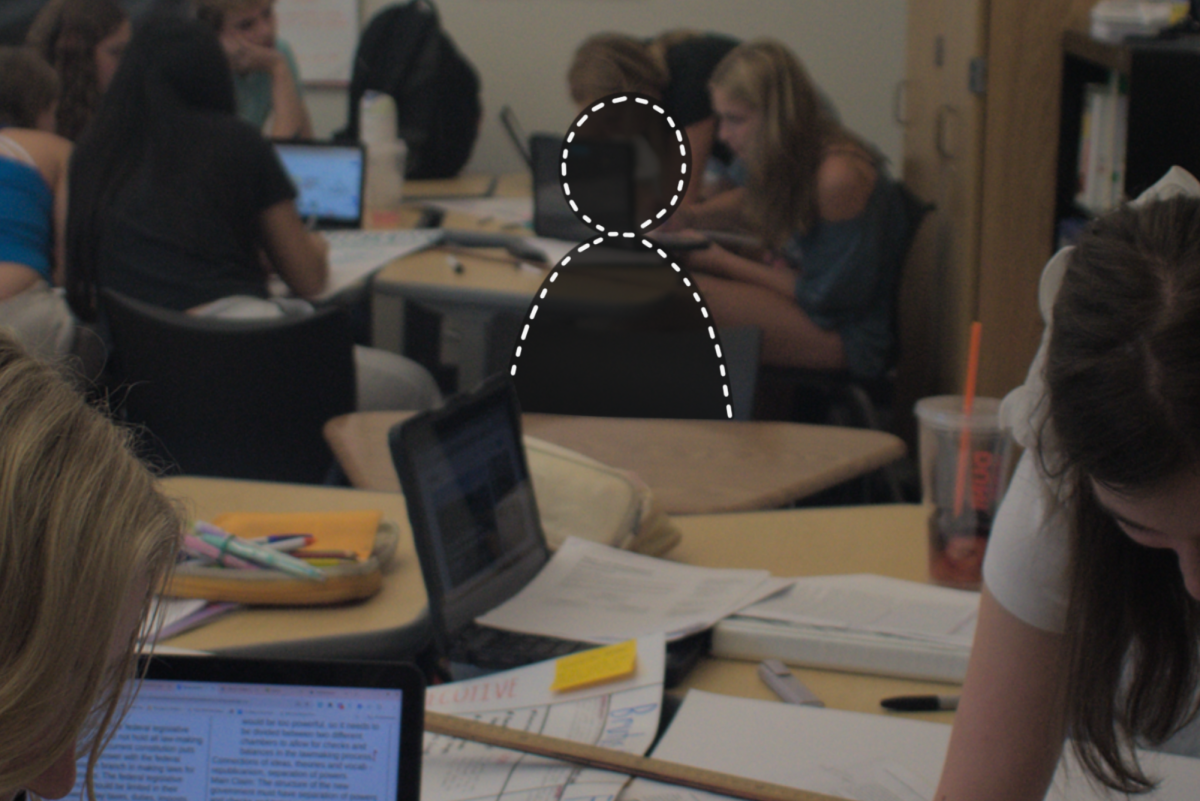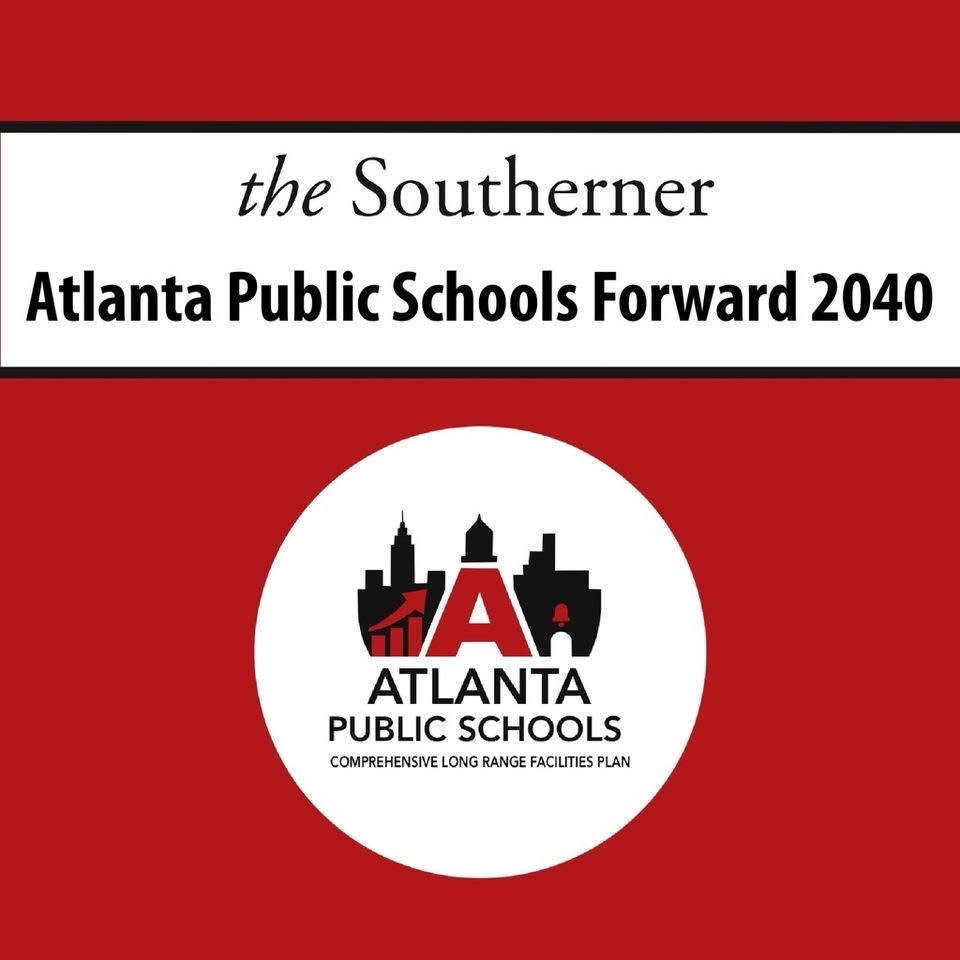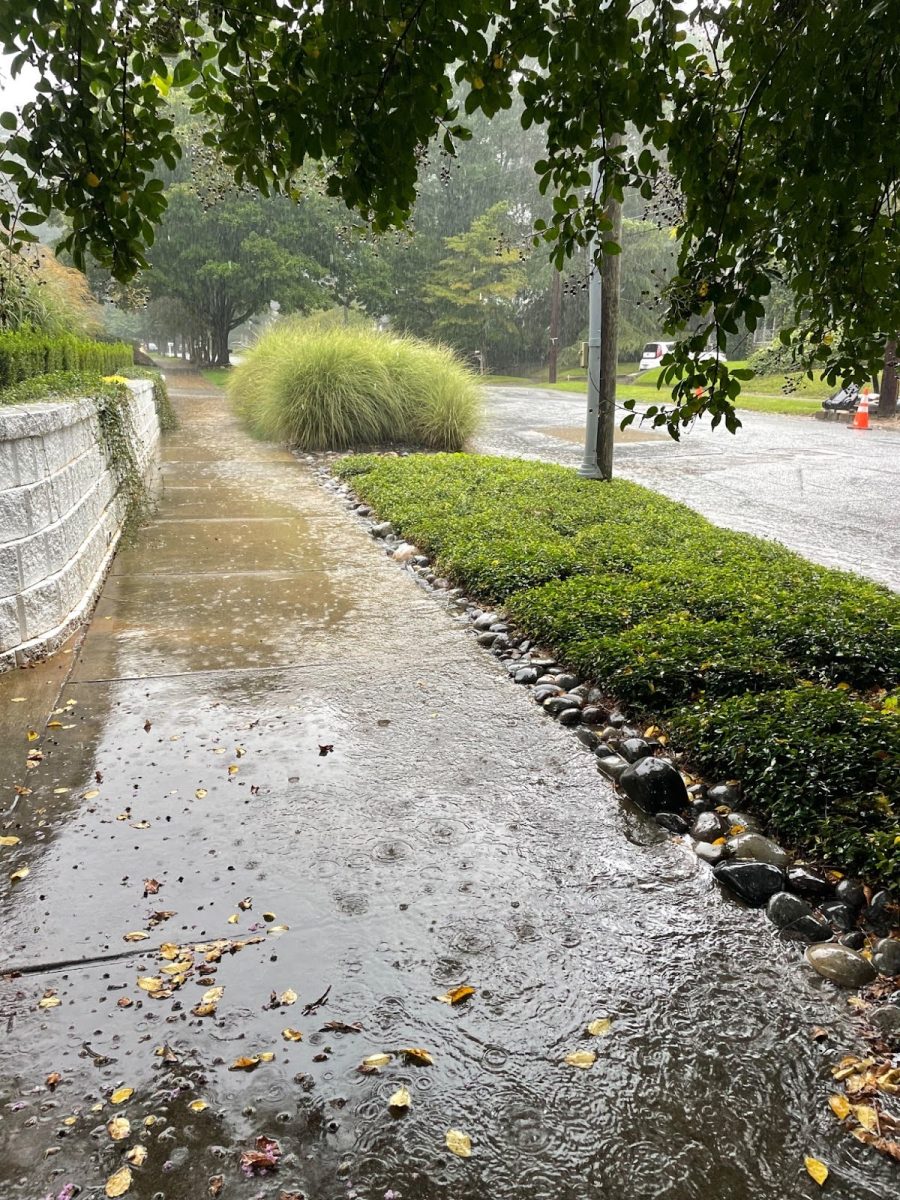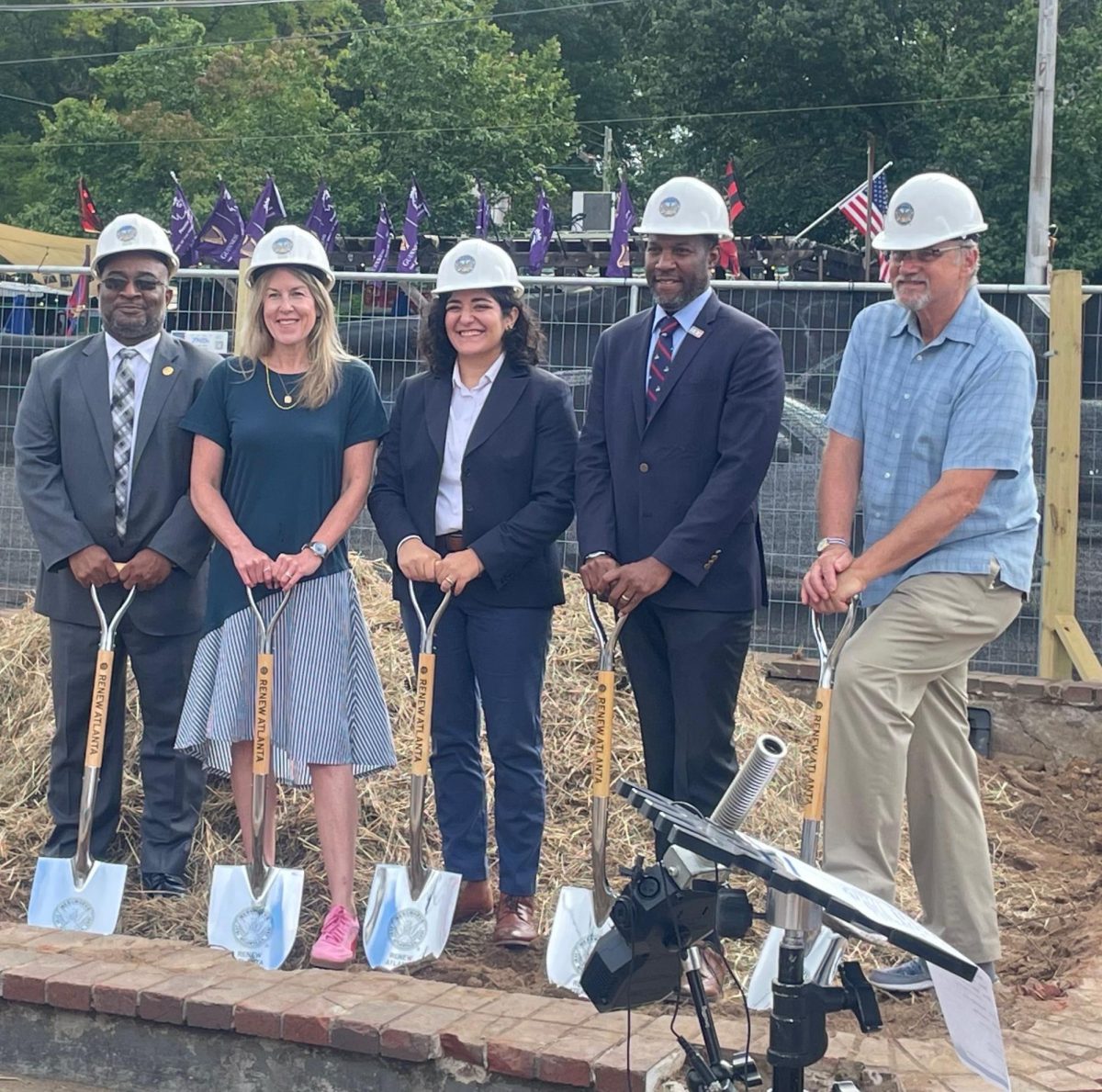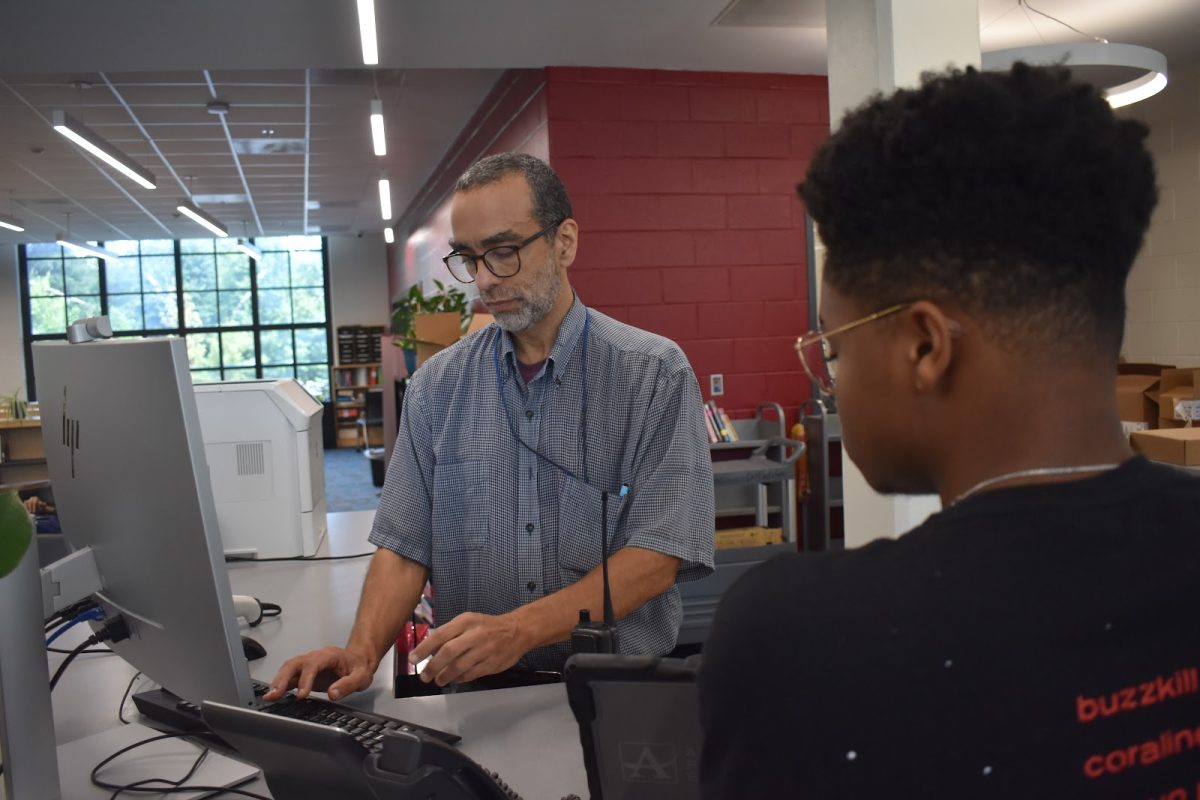Atlanta prepares for upcoming mayoral, school board, city council elections
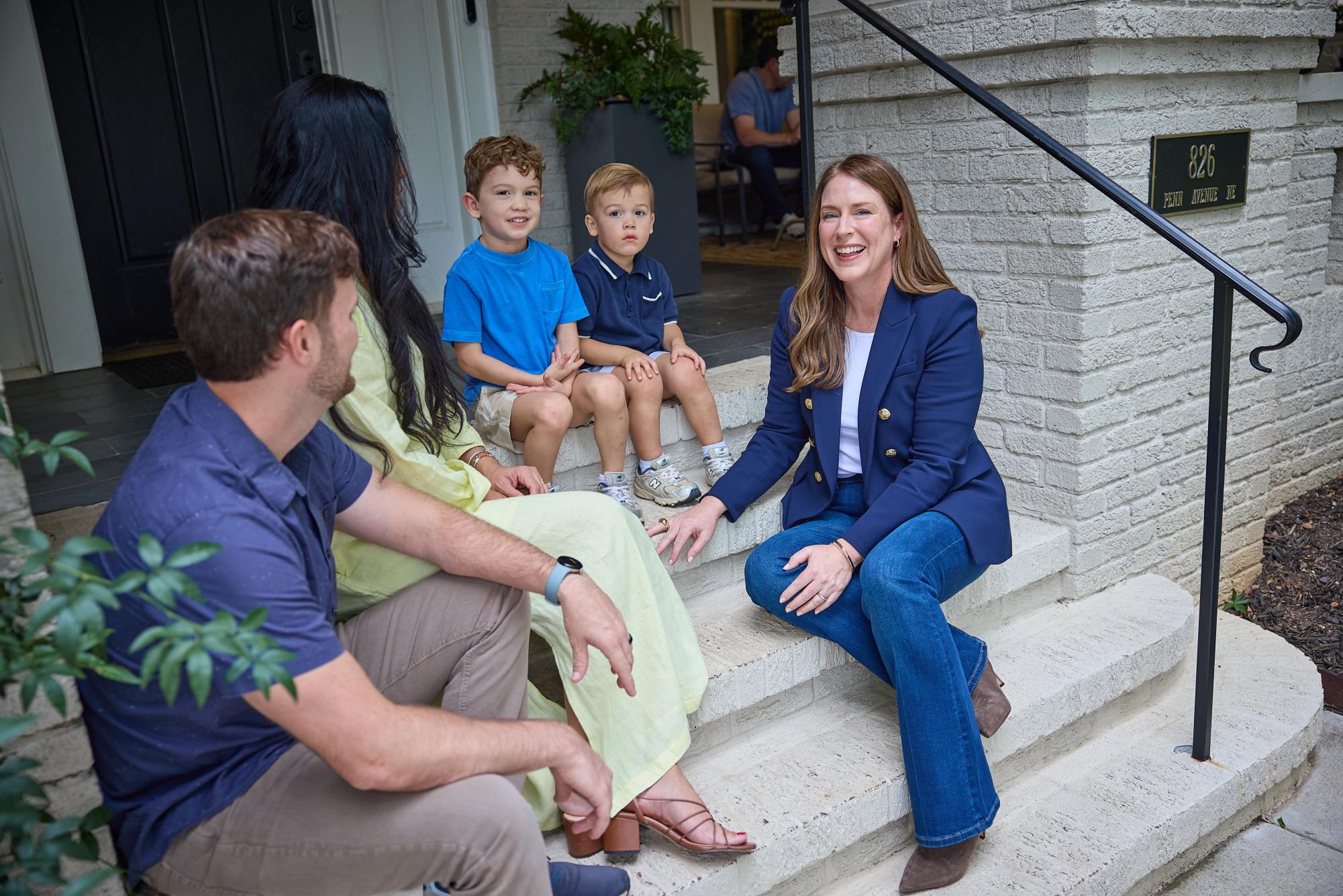
Atlanta’s local election day is just around the corner on Nov. 4, and candidates across the city have started campaigning for mayor, city council and school board.
With various seats up for reelection in the city, local politics are in the spotlight. Social studies teacher Susan Salvesen believes local politics are important because they impact the community.
“Out of all of the elections, I think local politics are most important because they affect your daily life, and they typically have the lowest voter turnout,” Salvesen said. “These elections have more of an impact on day-to-day issues that citizens in local areas have to deal with.”
Locally, these roles are key in determining policy each year. The Atlanta Board of Education creates policies for Atlanta Public Schools, and the mayor collaborates with the Atlanta City Council to serve the entire city. However, only 25% of voters participated in the 2021 municipal election. Because of the impact that local politics has on everyday aspects of life, senior Avery Frank believes all eligible students should vote in the upcoming election.
“Your local representatives make so many large decisions concerning school systems, public safety and community funding, which shape students’ lives, especially,” Frank said. “Exercising the privilege to vote is so important because it helps students to shape their beliefs and actually choose their representation.”
Frank is a member of the leadership team for Midtown Votes, a student organization that works to increase student voter turnout.
“Midtown Votes’ goal is to register all eligible students to vote, which is super important to educate Midtown students about their role in civic society,” Frank said. “We use a spreadsheet that has students’ birthdays so we can then determine their eligibility and contact them to help them register online.”
Like Frank, Salvesen believes students should vote in local elections, as the Atlanta school board, Atlanta City Council and the mayor play vital roles in city policy, such as determining the budget for APS or passing new zoning policies.
“Local elections impact students’ everyday lives and their futures,” Salvesen said. “If they’re going to return to Atlanta and raise a family here, there are definitely some things that students want changed, and this is one of the ways they can make their voices heard.”
Salvesen hopes this upcoming school board election will result in a strong base for education in the city. Because of the Trump administration’s recent educational policy changes, such as cutting federal education funding and expanding private school vouchers, she believes this is particularly important.
“The number one thing impacting schools right now is budget cuts from the federal government,” Salvesen said. “It impacts students, teachers and APS, in general. I think that it should be a focus of the new Atlanta School Board to increase revenue so that the cuts don’t affect student success.”
Specifically, Frank believes this election will be uniquely important as it will help voice Democrats’ stance against Trump.
“Local elections are becoming more and more important, especially for blue areas, such as Atlanta, which disagree more with the Trump administration,” Frank said. “Finding your voice within a smaller community can be helpful.”
One of the four candidates for Atlanta’s 2025 mayoral race is Dr. Helmut “Love” Domagalski. Love is a Republican father of three running on the ideas of spurring “growth” and inspiring “hope.” Before his campaign for mayor, Love worked at General Electric, McKesson, Microsoft, Nuance and IBM Watson, where he became a leader in innovation and portfolio management.
“There’s no reason that we should have homeless programs that don’t work when we have the capability,” Love said. “But also, people want to invest in Atlanta, and I think we should offer Atlanta as a test bed. Our social programs, homeless programs, housing, nonprofits and the private sector make Atlanta a beautiful place to invest in. That’s a key part of my strategy, and I think that is not only going to excite people today, but it is going to excite them about what we’re building here for tomorrow.”
Love has campaigned by reaching out to his constituents and meeting them at different events.
“A lot of my connection strategies have been going to where people already are,” Love said. “Showing up at park events, cocktails, Chamber of Commerce meetings and other various events have been really effective for meeting people. I’ve made it a way of life with everything I do; I’m constantly looking for places to go and connect with more people.”
Love has also utilized online tools in his mayoral campaign, which has allowed him to connect with a variety of people. Love noted that his online campaign has shown appeal from both parties.
“I built my own website for my campaign and did filming on my positions,” Love said. “I had a lot of great support from Republicans, but I also had great support from Democrats on my website. That made me excited because I realized my message is unifying: it’s appealing to both sides. I viewed using texting and my website as a big way of getting my message out to key voters.”
As a new face in Atlanta politics, Love hopes to earn as much support as possible and build his reputation in the future of his campaign.
“I’m in the process of showing people who I am because a lot of people just don’t know,” Love said. “On the funding side, I’m hopeful that I will be more effective at garnering more dollars. For me, it’s a focus to keep showing up and keep getting out there to do as much as possible.”
Alex Bevel Jones is one of six candidates running for Atlanta City Council District 2, which includes the Midtown, Old Fourth Ward, Poncey-Highland, Virginia-Highland and Inman Park areas. Jones is an Atlanta native whose campaign is centered around safety, transportation and ending homelessness. Jones believes the new BeltLine light rail plan is not an optimal solution to improve transit for Atlanta. The proposed light rail is estimated to cost $3.5 billion, according to Atlanta Beltline Inc.
“My family’s been in Atlanta on both sides for 150 years,” Jones said. “I have grown up in a family that has seen every iteration of public transportation this city has thrown at us. Quite frankly, I think there’s a lot more pressing needs that we can do with that money right now.”
Jones, an avid bike rider himself, supports the expansion and creation of bike lanes. As Virginia-Highland Civic Association president, Jones believes rather than a light rail on the BeltLine, the city should build a separate bike lane to reduce traffic and increase safety for pedestrians.
“I want to put a bike lane there,” Jones said. “I think it is incredibly dangerous to have bikes on the same trail that people are walking on. If you go down there on the weekends, it’s almost impossible to move. It gets so crowded. So, I would like to take that land that’s just sitting there waiting for a train to come and make a bike lane out of it.”
Jones believes safety is of utmost importance. While acknowledging the safety the affluence of a neighborhood like Virginia-Highland provides, Jones highlights the potential for advancement through better training and higher pay for first responders.
“I think I have a heightened sense of public safety,” Jones said. “Our cops, our first responders and our firemen need to be paid more, and they need to be trained better. They need to have every resource at their disposal to do their jobs to the absolute best of their abilities.”
On the campaign trail, Jones said he was surprised to learn the level of investment made by third-party groups. This contrasts with Jones’ campaign’s grassroots approach.
“We are approaching this campaign one vote at a time,” Jones said. “There’s a lot of money that’s getting thrown around in this election, and it’s actually really surprising to me, the level of investment that certain special interest groups and individuals are throwing around in this.”
To Jones, the Atlanta City Council is important because it is not influenced by party agendas.
“The power of the city council is it’s a non-partisan position, so we’re not running as Democrats or Republicans; I’m running as Alex,” Jones said. “And I think that’s a really powerful thing, because when you get on council, you’re one of 15 voices that represent the city, and you don’t have a party line to toe. You don’t have an agenda from higher-ups that are basically whipping you into voting certain ways.”
Atlanta native Kelsea Bond, another candidate campaigning for the City Council District 2 seat, said she is involved in labor unions and cares about affordability and transportation within the city. Bond believes it’s important to follow through with the promised BeltLine rail plan from 2016, but also recognizes that the need for transportation in Atlanta extends beyond the light rail.
“This is a promise we made to voters in 2016 when there was a voter referendum to support the 17 projects as part of the more MARTA program,” Bond said. “I want to prioritize making sure that happens, making sure that we keep our promises to voters. But it’s not all about BeltLine rail. It’s about the entirety of the more moderate MARTA project list, and also making Atlanta more walkable in general.”
Affordability in Atlanta’s housing market is a top priority for Bond. Atlanta is currently in a housing affordability crisis, and Bond believes a zoning change could help ease prices within the metro area.
“I would like to see more housing options, multifamily housing, duplexes, because this can, overall, lower the cost of housing and provide more options for folks who can’t afford buying a home right now,” Bond said.
Bond believes the city council is responsible for supporting workers.
“I want to make sure that the city council is standing up for organizing workers because they are up against so much being in the South, which has so many restrictive labor laws at the state level,” Bond said.
Atlanta has seen a decline in voter turnout in local elections since 1981. Bond is hopeful that if voters, especially young ones, see policies that they care about on the ballot, they will be more likely to turn out and vote.
“Voter participation, in general, is low, but particularly for municipal elections,” Bond said. “I’d like to see a lot more voter engagement from young people. I’m very hopeful that we will get more young people out to vote this November than average because they see themselves reflected in our campaign and the issues they care about.”
Dr. Stephen Owens is one of three candidates running for the District 2 seat of the Atlanta School Board, which includes the Douglass High School, North Atlanta High School and Washington High School clusters, as well as Centennial Academy, KIPP Strive Academy, KIPP WAYS Academy and KIPP Atlanta Collegiate. With a deep background in education, Dr. Owens said he plans to use his skills to help students across the city.
“I have been in and around education for my entire professional career, and I specifically spent the last 10 years on the policy side at the Georgia Department of Education, working as a policy analyst and Education Director at the Georgia Budget and Policy Institute,” Dr. Owens said. “We’re at an inflection point in Atlanta where we’re going to need really good policy and leadership. With the closure of the Department of Education and ICE raids tearing families apart, I think there are things that we can do at the board level to protect vulnerable students.”
With Dr. Owens’ campaign underway, he has run on three key ideas: improving discipline in schools, reforming the enrollment process for advanced classes and eliminating the closure of schools without community involvement.
“First, researchers found that getting rid of school suspensions for younger children has no negative effect on classroom behavior,” Dr. Owens said. “So, if we want to talk about curbing the school-to-prison pipeline, we need to start in our earliest grades and have a serious discussion about corrections for older students that doesn’t lead to generations of folk being led to the school-prison pipeline based on race and class. Second, I don’t know if we’re doing a good enough job of capturing the genius that exists in our city. If we’re overly reliant on gifted programs to populate honors classes and [Advanced Placement] and [International Baccalaureate] programs, we’re ignoring the genius that might not have done great on standardized tests in elementary school. Third, we need to be talking about what programs we should be ensuring for every family, and I think we should have no school closures without deep community investment.”
Dr. Owens’ campaign strategy has included meeting as many constituents as possible to get a grasp on their concerns and hopes for the Atlanta school board.
“I prioritize meeting people face-to-face by knocking on doors,” Dr. Owens said. “I’ve knocked on 4,600 doors over the last few months, and talked to about 1,000 people face-to-face on their porch. I prioritize listening to people and asking what they want out of their school system.”
Dr. Owens has three children in school and believes connecting and engaging with students is extremely important.
“I have deep connections with high school groups like Georgia Youth Justice Coalition and ACLU Students, who have been a proxy for me in the district,” Dr. Owens said. “Students are the ones feeling the effects of these policies, but that is often ignored. Students deserve to be invested in, not just for the future economic output they provide, but also because they have dignity right now as humans, which has been a big part of my advocacy.”
Sanjay Mendonca is the only candidate running against the incumbent Jennifer McDonald for Atlanta school board’s District 4 seat, which includes the North Atlanta High School cluster and Atlanta Classical Academy. Mendonca, a member of North Atlanta’s Parent Teacher Association for 10 years, aims to improve proficiency rates by increasing educational resources in his district.
“When I looked back and realized we had an almost $2 billion budget a year, I realized that we could, and should be doing better,” Mendonca said. “And there are schools where eight out of 10 students cannot read or write on their grade level. That’s a problem. With my background and with my skillsets, as well as the time I have because I’m a full-time dad, I can dedicate 60 hours a week to solving this.”
Mendonca has campaigned on the goal of reforming the way APS handles educational resources.
“I want to go to APS and say, ‘hey, let’s start looking at ourselves as a non-profit business,’” Mendonca said. “I know we are a public service, but let’s start being more competitive. If this was a business, you wouldn’t throw money at things and not expect something in return. I want to move our money towards where it’s needed the most.”
Despite being a political newcomer, Mendonca has found success connecting and meeting his community.
“When my campaign kicked off, I just got in touch with all of these amazing people who want better for our school and community,” Mendonca said. “Since then, it’s been a lot of listening to them and trying to work with them to figure out what the needs of the community are.”
During his campaign, Mendonca has been able to learn from his constituents and adjust his priorities if elected.
“I’ve learned a lot because when I started my campaign, I had a narrow scope vision of what was happening in our school district based on my experience and the people I knew,” Mendonca said. “But since then, I’ve met parents who are advising me and telling me what’s going on. It’s helped me by adding more priorities to my list. I think that’s the key to being successful: leaving your personal opinions aside and making sure you’re addressing the needs of the community.”
Throughout his campaign, Mendonca said he has prioritized transparency.
“I’m going to go out there and be myself; if people like me, I want them to vote for me, but if they don’t, I want them to vote for the incumbent,” Mendonca said. “It’s a democracy; it’s a choice. I’m not going to lie or be somebody I’m not just to get votes. That’s been hard for me, where I’ve had to stay true to myself.”
*In no way is the Southerner promoting one candidate over the other. We remain impartial in our coverage of the elections and only highlight various campaigns throughout the city.
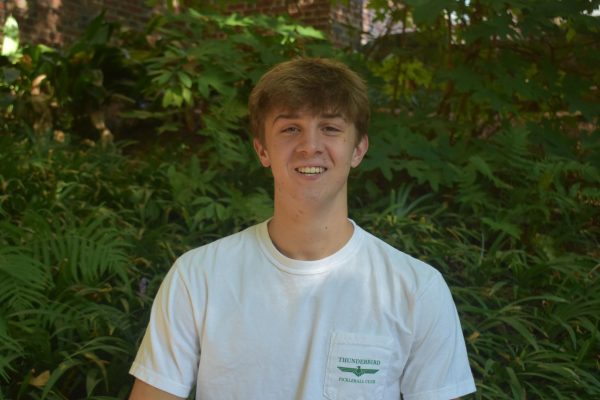
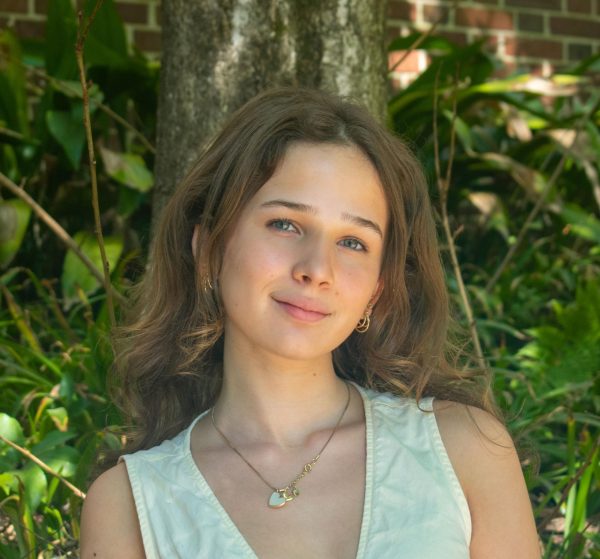
Fairlie Mercer is a senior and this is her third year writing for The Southerner. She currently serves as an Editor-in-Chief and is excited for her second year as an editor. Outside of journalism, she enjoys hanging out with friends and dance.



